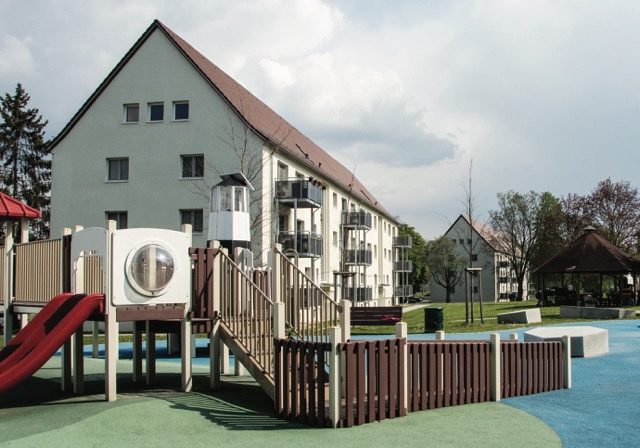
By John H. Campbell
Director – USAG Stuttgart Public Affairs Office
With a humanitarian crisis growing in Eastern Europe, many members of the Stuttgart DoD community have started asking what they can do to help. Some have considered the possibility of inviting refugees into their homes.
On Friday (March 18), U.S. European Command (EUCOM) provided additional information to DoD community leaders regarding assistance to refugees from Ukraine. No official DoD program currently exists for transporting or housing Ukrainian refugees. However, DoD community members who are inclined to provide assistance should consult with their command and must comply with host-nation laws. Installation and garrison commanders have been authority to determine whether to allow DoD community members to offer space in base housing.
“We are currently working to develop local guidance regarding the hosting of Ukrainian refugees in on-post housing,” said U.S. Army Garrison Stuttgart Commander Col. Matt Ziglar. “The Stuttgart military community has shown time and time again that they are very generous and we’ve already received several inquiries on this subject.”
DoD community members should also work with local host-nation organizations to ensure their activities support broader efforts to help those displaced. Donations to or volunteering with reputable relief organizations may be more impactful.
Questions & Answers
Q: Are DoD personnel and their families able to assist Ukrainian refugees?
A: While there is no official Department of Defense program for transporting or housing Ukrainian refugees at overseas military locations, members of the U.S. military community in Europe may provide such assistance in their personal capacity. Any assistance provided must comply with host nation laws and local installation guidance. Additionally, community members should be mindful of security, health, and force protection precautions while assisting Ukrainians in need.
Q: How can U.S. military community members help Ukrainian refugees?
A: To get the most impact, the private efforts of DOD personnel would ideally nest under a broader host nation relief effort and be undertaken in coordination with local government officials or well-established local aid organizations. Local government websites have excellent information about how to assist relief efforts and can direct community members to reputable aid organizations. All community members wishing to provide assistance must ensure compliance with host nation laws and local command guidance.
Q: Can U.S. personnel or family members transport Ukrainian refugees into Germany?
A: Community members wishing to provide transportation to Ukrainian refugees should always coordinate with host nation officials before bringing displaced Ukrainian families into, or offering housing within, the host nation. Not getting the right permissions could result in well-meaning individuals unintentionally violating host nation immigration laws.
Q: Can military community members host Ukrainian refugees in their off-post homes?
A: While community members may be eager to assist Ukrainian families by bringing them into their home, it’s worth considering that help from the DOD community in other forms might be more impactful. Additionally, community members should always coordinate with host nation officials before offering housing to displaced Ukrainian families. Housing displaced persons off-post may raise landlord-tenant law concerns for DOD personnel. Most residential leases require the landlord’s permission for additional guests to live on the property and failure to get such permission could result in lease termination. Community members should therefore additionally consult with their landlords prior to offering off-post housing to those displaced by the crisis.
Q: Can military community members host Ukrainian refugees in base housing?
A: In order for Ukrainian refugees to stay in base housing, the local installation commander’s permission is required. Staff at U.S. Army Garrison Stuttgart are working to develop specific guidance on this question. However, since displaced Ukrainians are not DOD-sponsored and not covered under our Status of Forces Agreements, access to DOD facilities and services is limited.
Q: What are some other considerations that need to be considered before hosting or transporting Ukrainian refugees?
A: Some members of the DOD community may be positioned to help refugees with efficient, long-term resettlement in the host nation. They have the strong language skills, community contacts, and familiarity with local government processes necessary to guide a Ukrainian family’s transition to life in the host nation. But for others, the best help may come by volunteering time and resources to local aid groups. Also, there are considerations related to security, health, and force protection that should be considered. For example, sharing living quarters with people from a foreign country triggers reporting requirements for security clearance purposes. Moreover, displaced persons may need urgent health care and require access to the Host Nation health system. As such, DOD personnel should consult with appropriate health and security experts early in the process.
